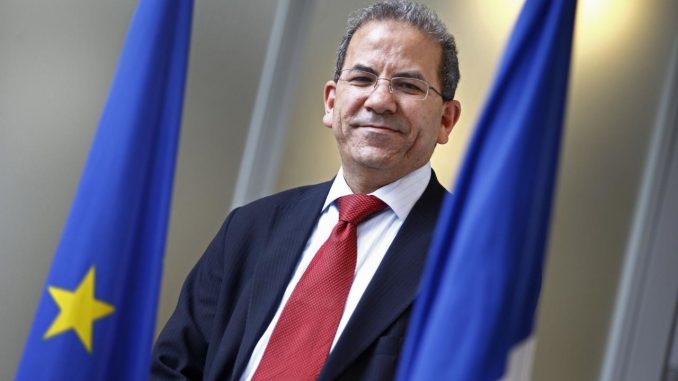
Last week, Moroccan Mohamed Moussaoui was elected president of the French Council of the Muslim Cult, created in 2003 on the initiative of former French President Nicolas Sarkozy, and which is considered the official voice of the public authorities for the 5 million practicing Muslims in France.
Moussaoui, 55 years old, and who has already presided over this Council in 2008 and 2013, was the only candidate, after the withdrawal of the candidacy of the Algerian, Chams-Eddine Hafed, who was elected head of the Great Mosque of Paris, following the resignation of the former Algerian rector, Dalil Boubakeur.
Moussaoui, who was elected for two years with 60 votes, by the 87 members of the board of directors, holds the presidency of the Union of French Mosques, which is considered to be one of the most important components of the French Council of the Muslim Cult, whose presidency has, since its creation, was disputed by Algeria and Morocco, leading some observers to believe that this represents an obstacle to the Council’s effective fulfillment of its mission to promote tolerant Islam, to combat terrorism and Islamist extremism and to reform the religious sphere in France.
With a doctorate in mathematics, Moussaoui is one of the advocates of the reform of the Council of the Interior; a difficult task requiring a long-term effort on the part of this lecturer from the University of Avignon, especially as the Council is facing many problems relating to representativeness, funding and the voting system.
Moussaoui continued his studies in Oujda. He joined Mohamed I University, where he obtained a general university degree in mathematics and physics in 1984, before obtaining a Bachelor’s degree in mathematics in Rabat as Major of the class of 1986. He then went to Montpellier where he obtained a PhD in Mathematics in 1990.
And alongside his scientific career, Moussaoui received religious training from Moroccan scholars, qualifying him to become a Friday Imam (Preacher) in many mosques in France.
The dispute between representatives of the Moroccan and Algerian communities nearlyput the Council’s elections in danger, after representatives of the Great Mosque of Paris, close to Algeria, threatened to withdraw from the Council if the Algerian candidate, Chams Eddine Hafed, was not appointed president of the Council. This demand has been firmly rejected by the close current in Morocco, which considers that the Algerian candidate is a supporter of the Polisario Front, hostile to the territorial integrity of the Kingdom.

Be the first to comment